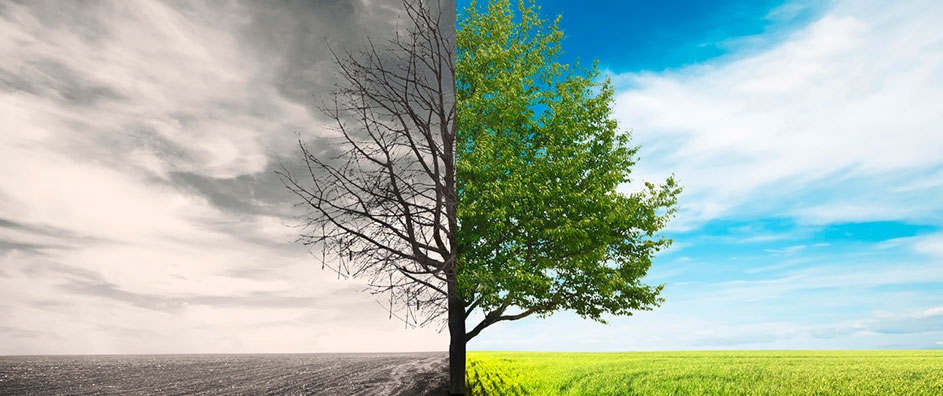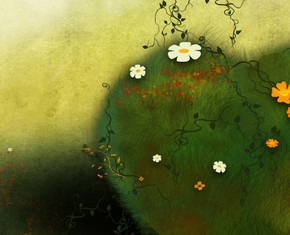The views expressed in our content reflect individual perspectives and do not represent the authoritative views of the Baha'i Faith.
Death, the Baha’i teachings assure us, is a messenger of joy.
As I have said several times already in this series of essays, according to everything I sincerely believe and hold dear, death is merely a birth into a more expansive and enjoyable reality, a reality my essential self already occupies. My rational mind has memorized and relies upon an array of wonderful passages from the Baha’i writings assuring me that this is so, that death is not to be feared, but to be welcomed as a release from the constraints and suffering of what Abdu’l-Baha and Baha’u’llah sometimes call this “dust heap” of a world:
Be not content with the ease of a passing day, and deprive not thyself of everlasting rest. Barter not the garden of eternal delight for the dust-heap of a mortal world. Up from thy prison ascend unto the glorious meads above, and from thy mortal cage wing thy flight unto the paradise of the Placeless. – Baha’u’llah, The Hidden Words, p. 36.
When the human soul soareth out of this transient heap of dust and riseth into the world of God, then veils will fall away, and verities will come to light, and all things unknown before will be made clear, and hidden truths be understood. – Abdu’l-Baha, Selections from the Writings of Abdu’l-Baha, p. 177.
In fact, in one delightful analogy Abdu’l-Baha compares the feeling of being released from the constraints of this life to the sense of exhilaration a bird might feel in being freed from its cage:
To hold that the spirit is annihilated upon the death of the body is to imagine that a bird imprisoned in a cage would perish if the cage were to be broken, though the bird has nothing to fear from the breaking of the cage. This body is even as the cage and the spirit is like the bird: We observe that this bird, unencumbered by its cage, soars freely in the world of sleep. Therefore, should the cage be broken, the bird would not only continue to exist but its senses would be heightened, its perception would be expanded, and its joy would grow more intense. – Some Answered Questions, newly revised edition, p. 262.
Why is it, then, that only now do I consider how the art of living is inseparable from the art of dying, and that increasingly I feel I am not yet prepared for that “release”?
The art of living and the art of dying are theoretically one-in-the-same process, whether we are speaking literally or figuratively. A quick look at a couple of passages from the authoritative Baha’i texts confirms this perspective—that as soon as we are born, we are dying, and as soon as we die, we are born. Accordingly, the art of living well is indeed inseparable from the art of preparing to die well.
Baha’u’llah notes this axiom when he states point blank that the entire purpose of spiritual education and enlightenment provided by the prophets of God is to prepare us individually for that second (or third) birth:
The Prophets and Messengers of God have been sent down for the sole purpose of guiding mankind to the straight Path of Truth. The purpose underlying Their revelation hath been to educate all men, that they may, at the hour of death, ascend, in the utmost purity and sanctity and with absolute detachment, to the throne of the Most High. – Gleanings from the Writings of Baha’u’llah, p. 156.
Since I am admittedly concerned about death, and, in all candor, I do not at this exact moment wish to attain it, I must presume I have not yet accomplished my life’s purpose and have not as yet completely mastered the art of living well.
On the one hand, I am pretty sure I would unhesitatingly give my life on the spur of the moment to save another or to uphold my beliefs. Yet clearly I have not yet perfected the art of living, else I presume I would be ready and eager to “ascend, in the utmost purity and sanctity and with absolute detachment, to the throne of the Most High.”
Certainly I would not spend hours scouring the internet for good prices on a Prius. Neither would I be so eager to make regular visits to Grandpa Johnson’s Barbeque to consume large quantities of collard greens and pulled pork were I sufficiently detached from this life to deem myself prepared.
How detached and spiritual can I be when I still maintain hopes of getting back into shape, of trimming down, of firming up my abs? I sometimes even consider buying a suit to look smart in case I am called upon to accept some grand award. The last suit I bought was thirty years ago to get married.
My thoughts and hopes for this material world, the Baha’i teachings say, only hold me back from the eternal reality:
If the hope of man be limited to the material world, what ultimate result is he working for? A man with even a little understanding must realize that he should not emulate the worm that holds to the earth in which it is finally buried. How can man be satisfied with this low degree? How can he find happiness there? My hope is that you may become free from the material world and strive to understand the meaning of the heavenly world, the world of lasting qualities, the world of truth, the world of eternal kingliness, so that your life may not be barren of results, for the life of the material man has no fruit of reality. Lasting results are produced by reflecting the heavenly existence.
If a man become touched with the divine spark, even though he be an outcast and oppressed, he will be happy and his happiness cannot die. – Abdu’l-Baha, Divine Philosophy, p. 56.
















Comments
Sign in or create an account
Continue with Googleor